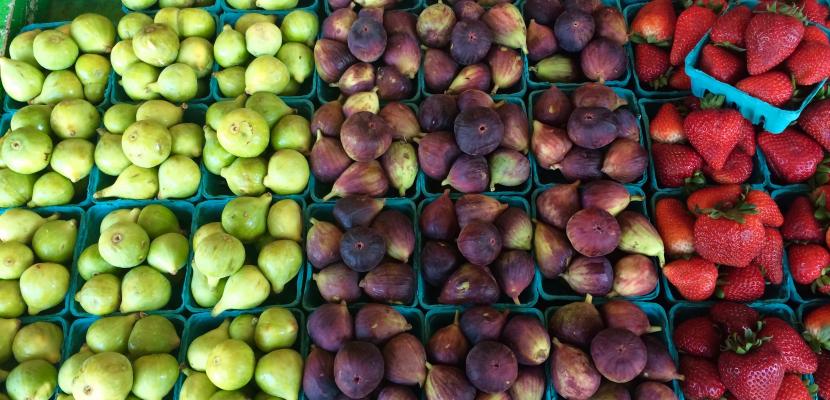Image

Dispensa sociale - Social larder
Published on 08 August 2018

Austria
Burgenland
This is the good practice's implementation level. It can be national, regional or local.
About this good practice
CAUTO recovers food items discarded from the large-scale retail trade, from the market and companies, to distribute them for social purposes. Food companies, canteens, hypermarkets and supermarkets can donate unsold goods, no longer tradable (Law 155/2003 Good Samaritan Law - 166/2016 Gadda law).
CAUTO has started the food recovery activities in 1993 by the collection of food waste at the wholesale fruit and vegetable market of Brescia and in the years to follow the activity increased.
Nowadays we have a selection platform that receives and selects about 3.000 tons of food waste per year. CAUTO collaborates with a network of big supermarkets mainly located in the Province of Brescia. The supermarkets donate the food waste, so they can reduce disposal costs of mixed and organic waste. CAUTO transports the food in refrigerated trucks and it selects the food in a refrigerated room thanks to the support of volunteers.
The selected food, suitable for human nutrition, is donated to a network of about 200 local charities. The beneficiaries of the charities are thousands of needy people. The food unsuitable for people is donated to local farmer and it is used for animal nutrition.
Food waste extends its own life cycle by becoming food donations for social purposes or turned into animal food, and so no longer just thrown away. The system generates economic benefits for the supermarkets, environmental benefits thanks to waste reduction and social benefits for the charities.
CAUTO has started the food recovery activities in 1993 by the collection of food waste at the wholesale fruit and vegetable market of Brescia and in the years to follow the activity increased.
Nowadays we have a selection platform that receives and selects about 3.000 tons of food waste per year. CAUTO collaborates with a network of big supermarkets mainly located in the Province of Brescia. The supermarkets donate the food waste, so they can reduce disposal costs of mixed and organic waste. CAUTO transports the food in refrigerated trucks and it selects the food in a refrigerated room thanks to the support of volunteers.
The selected food, suitable for human nutrition, is donated to a network of about 200 local charities. The beneficiaries of the charities are thousands of needy people. The food unsuitable for people is donated to local farmer and it is used for animal nutrition.
Food waste extends its own life cycle by becoming food donations for social purposes or turned into animal food, and so no longer just thrown away. The system generates economic benefits for the supermarkets, environmental benefits thanks to waste reduction and social benefits for the charities.
Resources needed
1) Volunteers (about 100 people) for food collection, separation and distribution
2) Employees (3 people) for coordination
3) Refrigerated trucks
4) Work area with refrigerated cells
5) Local network of food donors (big stores)
6) Local network of charities (beneficiaries)
2) Employees (3 people) for coordination
3) Refrigerated trucks
4) Work area with refrigerated cells
5) Local network of food donors (big stores)
6) Local network of charities (beneficiaries)
Evidence of success
1) Creation of a solid social and territorial network
2) Economic Multiplier effect: CAUTO investes about 150.000 euro and it distributes a value of 2.500.000 euro (3,2 million of kg x 0,5 euro/kg)
3) Waste Reduction:
- mixed waste (usually supermarkets don’t separate food waste because it is
a mixture between organic and packaging)
- organic waste produced
4) Positive social impact: about 40 % of volunteers are "fragile people"
2) Economic Multiplier effect: CAUTO investes about 150.000 euro and it distributes a value of 2.500.000 euro (3,2 million of kg x 0,5 euro/kg)
3) Waste Reduction:
- mixed waste (usually supermarkets don’t separate food waste because it is
a mixture between organic and packaging)
- organic waste produced
4) Positive social impact: about 40 % of volunteers are "fragile people"
Potential for learning or transfer
Thanks to LIFE NOW project (www.nowlife.eu) we created a replicable model for food waste management.
For instance it was replicated in 2013 by the social cooperative Babale Sociale in Umbria Region (http://www.babelesociale.com/servizi/dispensa-solidale/).
We are available to transfer the model in other social cooperatives, associations, charities around Europe.
For instance it was replicated in 2013 by the social cooperative Babale Sociale in Umbria Region (http://www.babelesociale.com/servizi/dispensa-solidale/).
We are available to transfer the model in other social cooperatives, associations, charities around Europe.
Further information
Website
Good practice owner
You can contact the good practice owner below for more detailed information.
Organisation
CAUTO Cantiere Autolimitazione

Italy
Lombardia
Contact
Dr.
